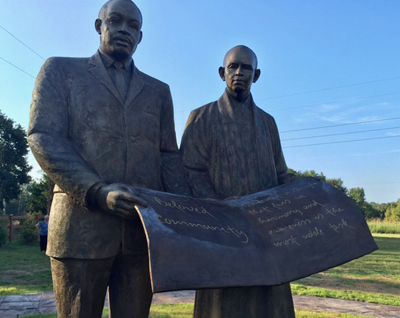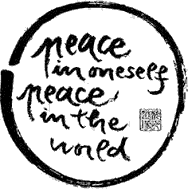Engaged Buddhism
 Thich Nhat Hanh named his focus and path “Engaged Buddhism” during the 1960s, born from the crucible of the Vietnam War. When war came to Vietnam, monks and nuns were confronted with the question of whether to adhere to the contemplative life and stay meditating in the monasteries, or to help those around them suffering under the bombings and turmoil of war. Thich Nhat Hanh was one of those who chose to do both, and in doing so founded the Engaged Buddhism movement, coining the term in his book Vietnam: Lotus in a Sea of Fire. Deeply understanding the importance of meditative practices and “coming home to oneself”, as well as the depths of the world’s suffering, he works tirelessly to support a spiritual path and global ethic that mindfully holds both of these. His life, writings and teachings wholeheartedly affirm being engaged in the world and engaged in the present moment. Engaged Buddhism supports the work of inner transformation for the benefit of all beings and society: peace in oneself, peace in the world. Thich Nhat Hanh’s Five and Fourteen Mindfulness Trainings describe this engagement in concrete and clear teachings.
Thich Nhat Hanh named his focus and path “Engaged Buddhism” during the 1960s, born from the crucible of the Vietnam War. When war came to Vietnam, monks and nuns were confronted with the question of whether to adhere to the contemplative life and stay meditating in the monasteries, or to help those around them suffering under the bombings and turmoil of war. Thich Nhat Hanh was one of those who chose to do both, and in doing so founded the Engaged Buddhism movement, coining the term in his book Vietnam: Lotus in a Sea of Fire. Deeply understanding the importance of meditative practices and “coming home to oneself”, as well as the depths of the world’s suffering, he works tirelessly to support a spiritual path and global ethic that mindfully holds both of these. His life, writings and teachings wholeheartedly affirm being engaged in the world and engaged in the present moment. Engaged Buddhism supports the work of inner transformation for the benefit of all beings and society: peace in oneself, peace in the world. Thich Nhat Hanh’s Five and Fourteen Mindfulness Trainings describe this engagement in concrete and clear teachings.

